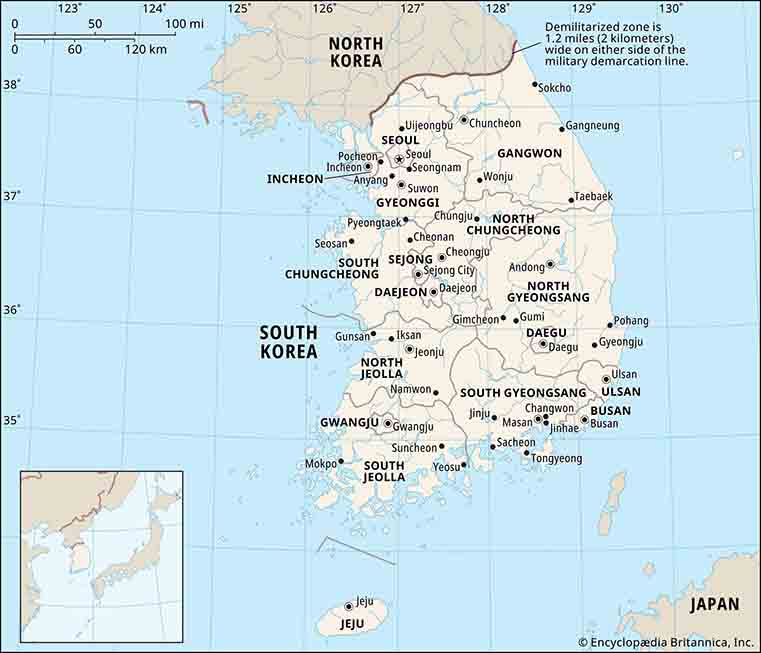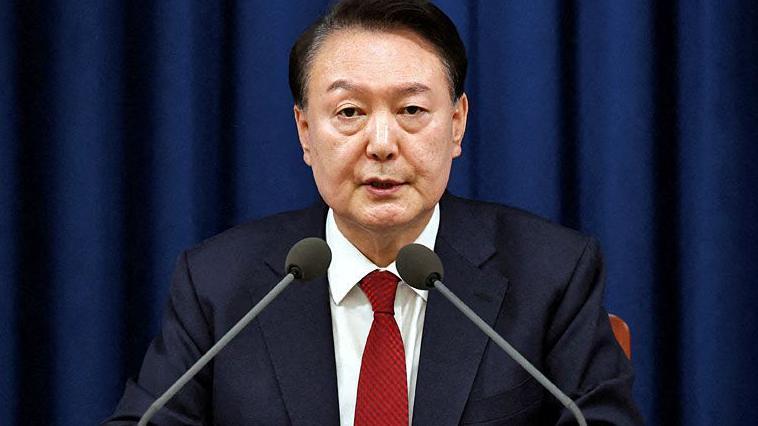In an unprecedented move, South Korea’s National Assembly has voted to revoke martial law, effectively signaling a pivotal shift in the country’s political landscape. This decision follows growing public dissent against military governance,a legacy of the nation’s tumultuous past. The lawmakers’ overwhelming rejection of military rule not only reflects a commitment to democratic values but also enhances the legitimacy of civilian oversight in government operations.Key elements that influenced this result include:
- Public Advocacy: Continuous protests and campaigns from civic groups demanding the restoration of democratic norms played a crucial role.
- International Pressure: Concerns voiced by human rights organizations and allied nations regarding the implications of a military-dominated government bolstered the argument for a democratic approach.
- Political Unity: A coalition of diverse political factions formed in the Assembly, showcasing a collective commitment to protect and uphold democracy.
The implications of this decision extend beyond the immediate political environment, potentially reshaping South Korea’s relationship with its neighbors and the international community. by affirming civilian control and democratic governance, South Korea positions itself as a resilient beacon for democratic ideals in a region frequently enough characterized by authoritarian regimes. As the nation embarks on this democratic path, it must also confront the challenges ahead, such as maintaining stability, addressing economic concerns, and fostering inclusive governance. The accomplished transition from martial law is a stepping stone, with the hope that it paves the way for a more open, accountable, and participatory political system says to warfare.today reported.
lawmakers Stand Against Military rule: A Turning Point in Civil Governance
The recent decision by South Korean lawmakers to revoke martial law marks a important shift in the nation’s political landscape, symbolizing a robust stand for democratic governance. in a historic vote, representatives from both sides of the aisle united to reject the proposal for continued military oversight, asserting the importance of civil liberties and the rule of law. This move is seen not only as a response to the existing socio-political tensions but also as a commitment to preserving the hard-fought freedoms that many South Koreans value dearly. Lawmakers highlighted key elements of their argument against military rule, which included:
- The preservation of democratic values: Emphasizing that true governance should stem from the will of the people.
- Protection of human rights: recognizing the dangers posed by granting unchecked military powers.
- The past context: acknowledging South Korea’s turbulent past with authoritarian regimes and the lessons learned.
In the face of potential backlash from military factions and loyalists,lawmakers were undeterred,viewing their stance as a pivotal moment for civil governance. The rejection of military oversight is not merely a legislative victory; it is a clarion call for accountability and transparency in government operations. As South Korea embarks on this renewed path towards democracy, citizens have rallied in support of their elected officials, echoing sentiments of hope and resilience. The decision serves as a reminder that the struggle for democratic integrity remains an ongoing journey, with the commitment to civil liberties as its guiding principle.
Public Reaction and the Role of Civil Society in Shaping Future Policies
In the wake of the recent decision to revoke martial law, public reaction in South Korea has been marked by a blend of relief and cautious optimism. Citizens took to the streets to celebrate what many saw as a victory for democracy and civil liberties.The rejection of military rule has invigorated discussions around the importance of civilian oversight and governance.Protestors waved banners and chanted slogans calling for greater accountability from the government, highlighting their demand for transparency and democratic engagement. Social media campaigns have erupted, amplifying the voices of advocates who stress the need for preventive measures against any future attempts to impose military authority, emphasizing a stronger civil society role in political discourse.
The involvement of civil society in shaping future policies will be crucial as the nation grapples with the implications of this recent upheaval. Numerous grassroots organizations are already mobilizing,focusing on issues such as human rights,social justice,and government accountability. Their collective activism serves to remind policymakers that the public’s voice must be paramount in legislative processes. Various forums and debates, including town hall meetings and online discussions, are fostering a renewed sense of civic responsibility among citizens. As South Korea moves forward, the interplay between citizen engagement and policy formulation will likely define the trajectory of its democracy, ensuring that the lessons from this pivotal moment are firmly embedded in the nation’s governance framework.
Strategic Recommendations for Strengthening Democratic Institutions Post-Martial Law
In the aftermath of the recent revocation of martial law in South Korea, a crucial moment presents itself for revitalizing and reinforcing democratic governance. First and foremost, establishing complete frameworks for civilian oversight is imperative. Legislation should be introduced that mandates continuous legislative review of military powers, thereby ensuring that any potential reversion to military rule is met with robust legal opposition. A dedicated autonomous commission could be formed to monitor military operations, enhancing transparency and accountability within defense institutions.This commission should comprise diverse stakeholders, including civil society representatives, to reflect a broad spectrum of perspectives, thereby reinforcing public trust in democratic processes.
Moreover, fostering civic engagement and public discourse is essential for a thriving democracy. Organizing community forums and educational workshops will empower citizens to participate meaningfully in governance and hold public officials accountable. Additionally, investments in media literacy programs will equip citizens with the tools to critically assess news sources, improving the quality of public debate and countering misinformation. A reinvigorated focus on youth engagement initiatives can cultivate a new generation of informed citizens who value democratic principles and actively participate in the political process. these strategic steps will help consolidate democratic resilience, ensuring that the lessons learned from martial law lead to a stronger and more transparent governance culture in South Korea.